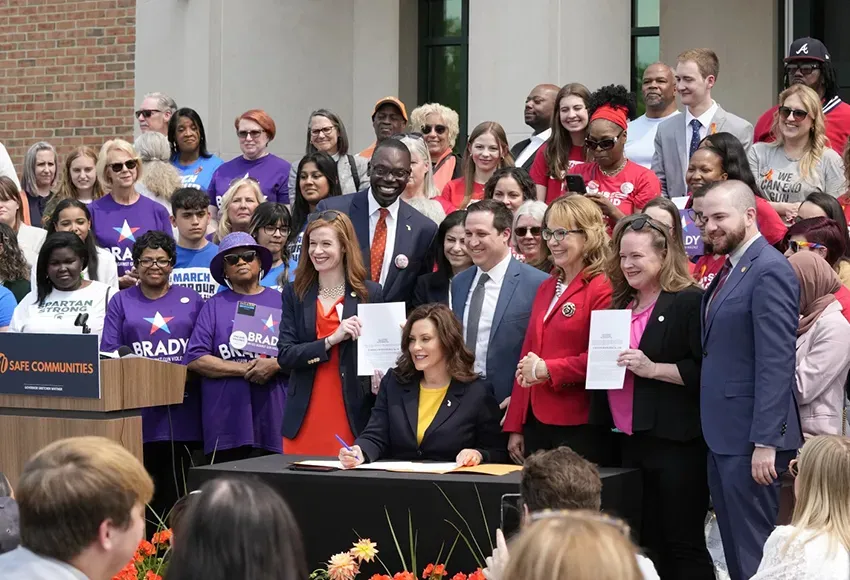Michigan and Minnesota could lead the way for states with Democratic majorities
Michigan and Minnesota currently have Democratic majorities in their legislative bodies, which has allowed for quick policy changes.
Within the past couple of months, Michigan codified LGBTQ+ protections within a civil rights law, prohibited companies from retaliating against people who get abortions, and banned conversion therapy for minors.
Minnesota's legislature passed a law that provides free school meals for K-12 students, as well as two gun safety measures – one that expands background checks for gun transfers and another that gives authorities the ability to temporarily take guns away from someone who is deemed to be a threat to others or themselves. The state also passed bills making voting easier by allowing 16- and 17-year-olds to preregister to vote and automatically registering people when they apply for a driver's license or public program like Medicaid.
Michigan and Minnesota are two of four states that gained Democratic "trifectas" in the 2022 state legislative elections, meaning that Democrats have control of the state House and Senate, and the governor is Democratic. Democrats currently hold 17 trifectas, Republicans hold 22.
Pennsylvania state Sen. Sharif Street says he's paid attention to what the two states have managed to do. "I've offered to Pennsylvanians that if we could flip the Senate, we could pass similar legislation," Street said.
In the 2024 elections, there's an opportunity for Democrats in some states – like Pennyslvania, Arizona, and New Hampshire – to achieve a trifecta. In Michigan, it was possible because the districts were not redrawn by legislators. In 2018, a constitutional amendment passed that established a randomly selected, 13-member panel to redraw district maps.
It's unclear how long the trifectas will last. Minnesota's last trifecta lasted two years, and Michigan's Republican legislators in both the House and Senate outraised Democrats during 2023.
Kansas state court set to weigh lawsuit from abortion providers
On Aug. 8, Kansas's state court was scheduled to hear a legal challenge from abortion providers to an existing law and a new one. The existing law currently requires a 24-hour waiting period between a consultation and the procedure itself. The new law, which became active July 1 but is currently on hold, would require providers to tell patients that their medication abortion can be stopped via a regimen used to prevent miscarriages. Medical groups have called the regimen unproven and possibly dangerous.
Although Kansas has a Republican legislature, it deviates from other states with similar political setups. In 2019, the state Supreme Court ruled that its constitution protects abortion rights. In 2022, the decision was reasserted by voters.
American Academy of Pediatrics reestablishes support for gender-affirming care
While states across the country pass restrictions on gender-affirming care, the American Academy of Pediatrics, representing 67,000 pediatricians, unanimously reaffirmed its support for the practice on Aug. 3.
The board also decided to provide additional resources to pediatricians, like clinical and technical reports, as well as research into such care.
Currently, 21 states have passed laws banning gender-affirming care for minors, according to the HRC. The AAP's CEO, Mark Del Monte, called such state restrictions "unprecedented."


